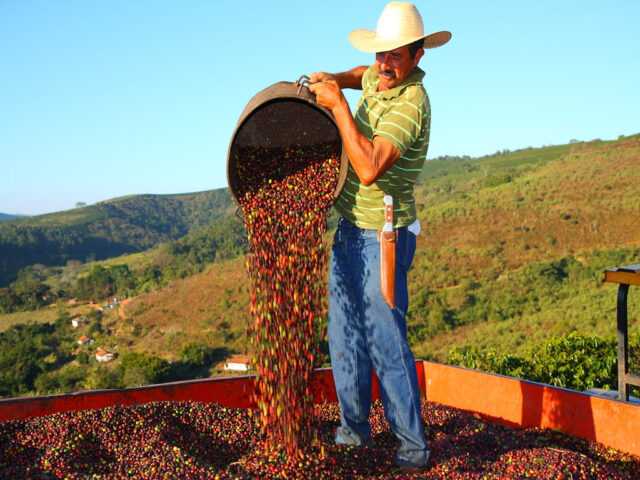Arabica coffee prices dropped sharply in the Brazilian market in August, mainly due to high supply, which, in turn, is linked to the record 2018/19 crop in Brazil.
Last month, the average CEPEA/ESALQ Index (delivered in São Paulo) for arabica coffee was 421.15 BRL per 60-kilo bag, the lowest level since January/14, in real terms (values were deflated by the IGP-DI from July/18). On August 31, the CEPEA/ESALQ Index closed at 422.44 BRL (103.84 USD) per bag, 1.76% down compared to that on July 31.
Liquidity, in turn, was low. Growers were retracted, focused on scheduled deliveries. As for purchasers, the agents consulted by Cepea indicated that the recent heat wave in countries from the northern hemisphere, the biggest purchasers of the Brazilian coffee, may have lowered demand. Besides, the surplus forecast for the 2018/19 global season was keeping purchasers away from trades too.
Robusta
Robusta quotes dropped in August too, influenced by international prices drops and lower values for arabica in Brazil. That scenario kept most sellers away from the market, hampering trades. According to agents, most part of robusta coffee has already been traded, in both Espírito Santo and Rondônia – growers should wait for prices to rise to sell the beans remaining.
The CEPEA/ESALQ Index for the robusta type 6, screen 13, Espírito Santo State, closed at 321.87 BRL (79.12 USD) per 60-kilo bag on August 31, 0.8% up compared to that on July 31.
Field
As robusta and arabica harvestings end in Brazil, farmers start to focus on the next season (2019/20). After the rains in early August, flowers can already be observed in all regions. So far, only a small number of flowers have opened, but agents believe the warmer weather in late August may induce a more significant blossom, mainly in Espírito Santo, southern Minas Gerais, Garça (SP) and northwestern Paraná, where the rain volume was larger.
Thus, some growers have already started planning for next crop, pruning trees and purchasing inputs for top dressing. However, with the recent coffee price drops and higher quotes for inputs, Brazilian growers’ purchase power has decreased sharply.




















